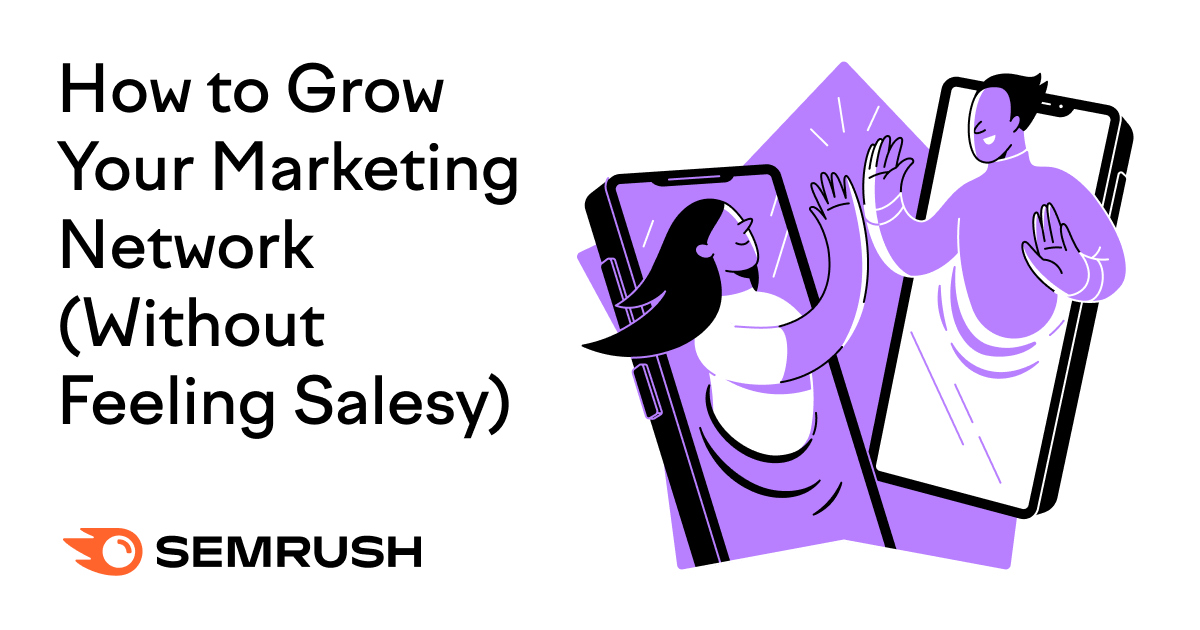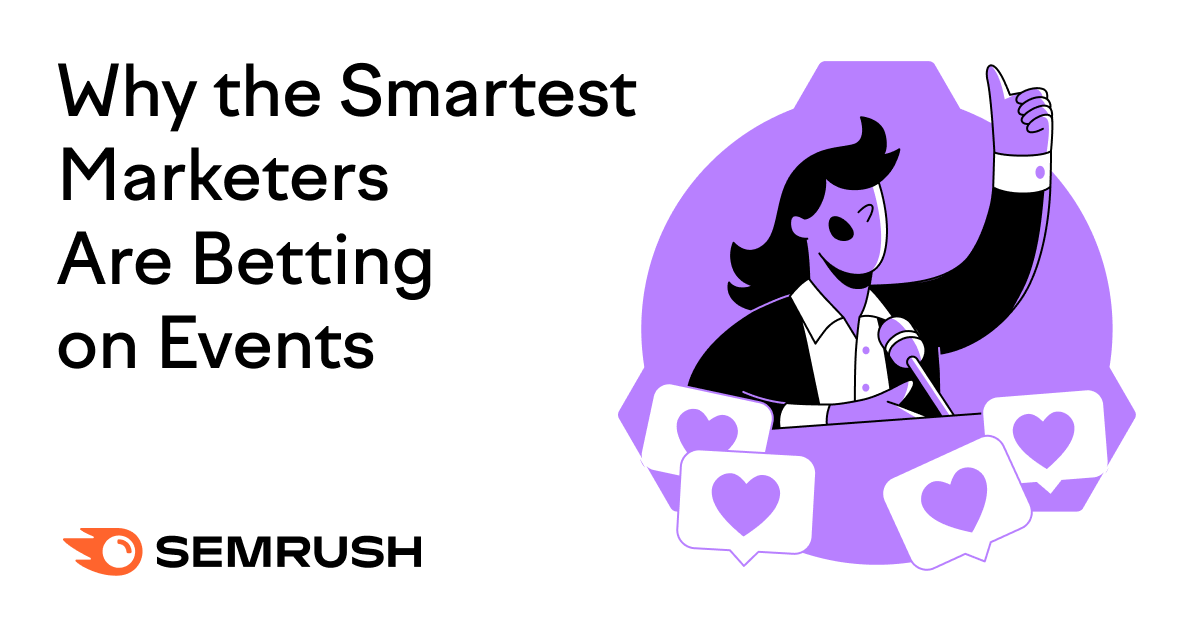
Day one recap contributors were Emilie Martin, Vickie Wu, and Zach Edelstein.
Today, we kicked off day one of MozCon 2023. That’s right – we’re back and better than ever!
We’re in a brand new venue this year, and we’re excited to experience it for the first time with all of you! Whether you joined us in person or via our live stream, we are so grateful to get back together again for another year of MozCon madness.
We hope day one helped set the scene for what the future of search is going to look like. Let’s recap yesterday’s talks.
Opening remarks + State of the Industry — Cheryl Draper
Setting the stage for what’s to come, Cheryl Draper kicks off MozCon 2023, laying out all the important details you’ll need to get through two jam-packed days! From seasoned speakers to our community speakers, Cheryl made sure to let us know what we’re in for this year. Cheryl is joined by fellow emcees Melissa Rae Brown and Cyrus Shepard.
Cheryl let us know the reason we chose the future of search as this year’s theme. It has everything to do with Seattle! Very fitting, as Seattle is known as the city of the future and has future-related infrastructure, like the monorail and space needle. We wanted to imagine what the future would look like. A lot has changed since the last time we came together, and we’re forced to think more than ever about the future of search; think of machine learning, artificial intelligence, TikTok, and Google Analytics 4. Every time we log online, there’s something new to digest!
Make sure to take breaks, grab yourself some lunch, and stay hydrated! Remember to follow #MozCon on Twitter, or X, and get involved in the conversation over there.
Am I about to go on a ride or at a digital marketing conference?
Does it matter?! 😉 #MozCon pic.twitter.com/D4l7hCYBGz
— Holly Miller Anderson | Marketing, SEO, eCom DTC (@millertime_baby) August 7, 2023
Google’s Just Not That Into You: Intent Switches During Core Updates — Lily Ray
Acting as the conduit between us and impactful changes to the Google algorithm, Lily Ray returns to the MozCon stage with her thoughts on why your rankings may have changed during a core update. Following up on her 2022 talk on Why Real Expertise is the Most Important Ranking Factor of Them All, Lily delved deeper into Google algorithm intricacies.
Many SEOs have wondered why Lily and her team are so obsessed with core updates. Lily revealed her origin story starting with getting on the wrong side of Google’s 2012 Penguin update. Lily took her knowledge and experience over to the agency world and did things right, committing to helping businesses suffering from Google core updates.
This Penguin Update slide from @lilyraynyc is freaking me out #mozcon pic.twitter.com/423YHQFyFe
— Dr. Pete Meyers (@dr_pete) August 7, 2023
If you’ve been impacted by a core update, to deal with your recovery, Lily recommends prioritizing fixing these issues:
-
Changes in user behavior — Lily used the example of the company ‘Playground’, battling with several other companies with the same name online.
-
World events and crises — Lily used the example of the keyword ‘masks’ and pages related to them. Previously, costume masks ranked on page one, but during COVID-19, medical face masks took the top spots instead.
-
Overhauls to search, like EEAT.
-
Relevancy shifts and Quality Deserves Freshness (QDF) — Before the July 2021 updates, if you searched for Steel Dragon, the results that showed up included a game and a hardware store. After the update, they started ranking the rock band, intent shifted, and Google started understanding more about user intent related to the keyword.
-
Intent switching — We’ve got the three classics, informational, transactional, and navigational. But we all know there are more than three search intents. Lily mentions buying products, fact-checking recipes, seeing pictures, looking at the news, watching a video, translating, and more. Lily emphasized creating content for each intent you think your users hold when searching. Be everywhere your customers can find you.
Intent shifts are inevitable, and patience is a virtue when it comes down to it. If you’re looking to see where you can find information on Google Core updates, you can see a list of them here.
You can catch Lily performing as our DJ at our closing party at MoPOP.
Why SEOs Need to Start Playing Offense Instead of Defense — Chris Long
Chris turned heads last year with his talk on Advanced On-Page Optimization, and he joined us this year to discuss how to shift to an offensive SEO mindset, helping you to prioritize key initiatives, get stakeholder buy-in, and navigate successful long-term SEO strategy.
In a game of chess, you always want to be on the offensive so that you can control the board. But in SEO, we feel like we always have to be on defense. The best SEOs that Chris knows are constantly playing offense; they’re experimenting and looking at the future of search.
So how can SEOs play offense?
-
Identify new content opportunities — Chris suggests starting with a content gap analysis, which you can do with Moz Pro – but this is a little on the defensive side. To look at it offensively, we need to know what topical areas we need content for. For example, if we work with personal loans, we might look at all keywords to do with personal loans – we can now build content in this topical area.
-
Choosing which pages to optimize — The more advanced way of optimizing content involves finding which categories we need more visibility in. This works on sites with many different topical areas, for example, Macy’s.
-
Technical SEO prioritization — First, evaluate the percentage of total pages experiencing technical issues, then evaluate issue type. Make sure to take your recommendations as close to the end as possible.
If you do tho, you’ll always always be playing defense. @gofishchris #mozcon pic.twitter.com/zYHHPf1Sz8
— Yosef Silver (@ysilver) August 7, 2023
-
Get data for key initiatives — Getting buy-in is just as important as the SEO work, and one of Chris’ favorite ways to do this is by framing every content initiative as an opportunity cost. What is the opportunity cost of not creating a specific type of content?
-
Perform experiments — Chris’ experimentation process includes creating a hypothesis, implementing a testing framework, and measuring the results.
-
Chris noted that SEOs need to embrace AI— the SEOs playing offensive are implementing AI in their workflows. According to Chris’ online poll, approximately 72% of SEOs are already doing so, and Chris is confident that AI will enable us to become better creators.
A special announcement from Moz you’re not gonna want to miss!
We’re so delighted to share that Brand Authority is here! Melissa Rae Brown introduced our exciting new metric, available for Moz Pro and Moz API customers. Learn more about how you can use Brand Authority in Dr. Pete’s blog post – Introducing Brand Authority: Measuring the Unmeasurable.
And… Brand Authority is live! #MozCon https://t.co/R9qiPE5b2R
— Emilie Martin (she/her) (@emiliecgm) August 7, 2023
SEO Co-Conspirators: Navigating Complex Systems — Jackie Chu
Jackie Chu discussed tips and tricks for growing organic traffic at scale in 2022 and came back this year to share how you can source and uncover allies, enlist your coworkers, and successfully navigate the political landscape to get your own SEO project prioritized.
The easiest way to get shut down as an SEO is to tell people you need to do things “for SEO”. Jackie has gotten really good at making sure what she needs to get done is taken seriously; she looks to the legal team, the business owner, and the engineering team in organizations to find her allies.
“Piggyback on company-wide key initiatives to get your work prioritised” says @jackiecchu #MozCon pic.twitter.com/T14xEabZAb
— Lidia Infante (@LidiaInfanteM) August 7, 2023
Spearhead your accessibility projects with your legal team. Accessibility issues are SEO issues. Web accessibility involves making sure your website and web content are usable for everyone and accommodates all accessibility issues. 4.5% of people are colorblind; that’s quite a lot of people to be excluding. Follow web content accessibility guidelines, and note 4 significant themes: your content needs to be perceivable, operable, understandable, and robust. Jackie recommended checking out bit.ly/seo-access for a complete checklist of web accessibility guidelines.
Enlist the business owner. Identify who would care about your project’s success, tell them what they can get out of it, agree on who will drive what, and highlight the time to see the impact. Instead of saying something like, “We’ll fix broken links that will help SEO,” say, “We’ll fix broken links… to increase traffic and revenue to payments.” Getting buy-in from the business owner can help you scale your impact and build trust and relationships.
When working with your engineering team, ask yourself — is this a bug, or is it a feature? Most engineers want the company to be successful, and it’s important to set them up with accurate information. If it’s a bug, ask yourself if this is a confusing brand experience, if it’s impacting any customer, and if it’s impacting other channels (like SEM). Examples include; the page not rendering, content differences on mobile and desktop, blocking Google bot, rate limiting, and 500 errors.
Consider the previous three suggestions when attempting to find your allies at your company. If you learn how to package your SEO projects by framing other people’s motivations, you can start to get them prioritized.
Search Data at Scale — Daniel Waisberg
In his inaugural MozCon talk, Daniel set a precedent for equipping a room full of people with invaluable skills for managing data at scale, using Google Search Console bulk exports.
Now on the #MozCon stage, @danielwaisberg! First time MozCon presenter, handling it like a pro 😎 pic.twitter.com/pc5zPoxQd2
— STAT Search Analytics (@getSTAT) August 7, 2023
Daniel is super passionate about the Google Search Console bulk data exporting functionality. The first milestones of creating this product included asking stakeholders if they could create it, how they should do it, and getting the correct approval. The project moved swiftly to testing internally and eternally, then documentation was written, final tweaks made, and the product was launched!
Big theme of the day I’m seeing…
GETTING BUY-IN. 🤝
Heard it across all four talks so far, even @danielwaisberg talking about shipping new GSC features. Ideas are only one part of the equation. You also need the buy-in to SHIP things.#mozcon
— Josh Gallant 🇨🇦 (at MozCon) (@joshgallantco) August 7, 2023
To access the tool, head to Google Search Console, input your data and receive bulk exports daily for your website. You’ll see site impression, which is aggregated, and it is segmented by country, device type, and more. You can even drill down to specific pages.
To be more efficient in your data analysis, Daniel suggests focusing on planning and optimizing.
-
Plan your data pools to avoid surprises, and be smart about how you pull your data. If you have a large website, you can limit your data — N.B. set your expiration date to partition, not your table! Remember to pre-aggregate your data for analysis and set billing alerts and restrictions.
-
When focusing on optimization, limit the input scan, sample the data, and use approximate functions.
Daniel wants to make sure search data is available and useful at scale. He recommended SEOs focus on search, Google Search Console, and Google Trends. Check out Daniel’s training on bulk data exports here.
Beyond the Written Word: Future-Proofing Your Content Strategy by Leveraging Multimedia Formats — Azeem Ahmad
We were so happy to have Azeem, one of our fantastic Community Speakers, grace the stage (for the very first time!) Azeem talked us through how to future-proof your content strategy and stay ahead of the competition.
As marketers, we measure too much stuff. Azeem lets us know where we get it wrong; we know what users want, but we often don’t know how they want it. Throwing up blog pages doesn’t cut it anymore.
If we as a community had moved beyond this, there prolly wouldn’t be a slide for it in @azeemdigital’s deck… #mozcon pic.twitter.com/e6Fl27XSPY
— James Wirth (@jameswirth) August 7, 2023
To go from basic to advanced in measuring data, Azeem recommends following these steps:
Azeem’s quick-fire tips for creating audio and video content include:
Check out Azeem’s Whiteboard Friday to learn more about diversifying your content strategy.
From Fear to Forward Motion: Navigating the Future of Analytics with Confidence — Brie E. Anderson
After lunch, Brie entered the stage to remind us of the ever-looming topic of GA4. Just kidding, we’re all pulling up our socks to try and figure out how best to use this new set of analytics to make real business decisions. Brie mentioned that change is hard, but it’s also inevitable.
She guided us through the most important sections of GA4 and how we can put it to work:
-
Data stream is how information gets from your website to GA4.
-
Events are where you can see what you’re tracking, if it’s important, and if it’s working. This is key for documentation and to meeting your business, marketing, and personal goals.
-
You can mark any events of your choosing as Conversions with ease!
-
Audiences, while similar to UA, now have unique new features in GA4. For example, you can now add an audience trigger, which will create an event when someone becomes a member of that audience. Time-based audiences are also worthwhile trying out!
-
Data Settings — It’s best to speak to a privacy expert to see what’s right for you.
-
Product links — Do them!
-
Brie said, “The best and worst thing about GA4 is it’s customizable.” This is especially true for Reports.
-
A vital tool in Advertising to make use of is Conversion Paths, which help you see where in the funnel channels are falling.
As much as this change can feel daunting and isolating, Brie shared comforting words as her last sentiment. Us marketers, SEOs, business owners, etc. — we’re all going through it together! GA4 may not feel intuitive initially, but as long as you’re willing to embrace the mistakes along the way, it’ll all be worth it in the end. Brush up on your GA4 skills with the Beginner’s Guide to Google Analytics.
Watching @brie_e_anderson give her #MozCon presentation on GA4 and yowza am I super glad she exists. So many little nuances and randomness of where certain things are that are not intuitive nor have clear documentation.
— Blake Denman 🙃 (@blakedenman) August 7, 2023
Down the Mountain — Noah Learner
Noah spoke on the MozCon stage last year about how to break into new areas with topic maps and rejoined us this year to share his evergreen framework for optimizing your own career, which can be applied to any market. He laid out this repeatable process in four steps:
1) Go wide:
-
Create a strong skill set — This can look like working in an agency early on, signing up for sucky work, embracing errors, and finding ways to fuel your curiosity outside of work and within your circle of friends and family.
-
Critical thinking is the art of deciding what to do and when to do it. Find and use a decision-making process that works for you, and make improvements regularly!
2) Go deep:
-
Find your Ikigai (“reason for being”.) Uncover what ties all the things you love together.
-
Don’t be afraid to reach out to your heroes. A like, comment, DM, zoom call, and in-person conversation can take you far. Go into these conversations with the mindset of seeking as much wisdom as possible.
-
Join communities with the same types of people and passions. Can’t find them? Build your own!
3) Go big
-
Are you a writer? Start a blog. Prefer speaking? Host a podcast (and feature your heroes!). Learn how to speak and ask for what you want.
-
Overcome fears through therapy, box breathing, recording and revisiting wins, and remembering your purpose.
4) Give back
This all started with Noah drawing his “Why.” From there, he put in the time and effort to get his flock down the mountain. Now it’s your turn to ask yourself: What’s my dream, and what would I sacrifice to get it?
For all those at #MozCon looking for @noahlearner‘s SEO Community Slack link: https://t.co/TyKzMtzfna
— Moz (@Moz) August 7, 2023
The SERP Is Dead, Long Live the SERP — Tom Capper
Our very own Tom Capper, following up from his 2022 talk on non-catastrophic keyword research, addressed Google’s ever-changing SERP and looked at Google’s direction for the future.
The first major death of SEO was in 2003: Google Ads. In 2012, the knowledge graph killed SEO. In 2014, SEO killed Google. In 2020, “zero-click searches” killed SEO. Despite all of the “dead SEO’ instances in history, Tom mentions that interest in SEO is only growing.
Tom talked about the elephant in the room: SGE (Search Generative Experience.) Here are some interesting observations Tom made on how it’s performing:
-
SGE is appearing less and less, possibly to save costs.
-
There’s very little overlap with organic results, indicating that SGE ranking is likely not built on organic ranking.
-
“Follow Up” in the SGE is very similar to “People also ask,” and maps are often replicated in the SGE and below it. This points to SGE being built in a rush, with little consideration of redundant results and functionalities.
TLDR: SGE is often not appropriate and can even be wrong a lot of the time.
What happens next? You’ll be happy to hear that there are worthwhile opportunities that will hold up now and in the future for SEOs, businesses, and publishers alike. Tom advises to start investing efforts in Google Business Profiles, Google Shopping, and a human approach to content.
Absolutely loving the research @THCapper did about SGE.
– SGE often pulls from sites not ranking in top positions
– SGE doesn’t show ads
– SGE is redundant w/ other SERP featuresLooks like we came to many similar conclusions 👏🏽#MozCon pic.twitter.com/z3XXGa9b4a
— Lily Ray 😏 (@lilyraynyc) August 7, 2023
Headless SEO: I’m Sorry, But This Is Happening — Lidia Infante
Lidia joined us for her second year on the MozCon stage. Last year she presented us with tips on SEO gap analysis, but this year, she spoke about headless SEO.
You’d think I shouldn’t be nervous about public speaking anymore, but no #MozCon pic.twitter.com/HcQhtVinzK
— Lidia Infante (@LidiaInfanteM) August 7, 2023
If you’re not sure what ‘headless CMS’ is, it refers to a CMS that deals only with content, not the front-end experience of a website. This type of CMS allows you to post content anywhere — the web, apps, and more via API.
Given this definition of a headless CMS, what is different about headless SEO? Lidia described the pros and cons of a headless CMS for SEO. The downside is traditional CMS will allow you to use plugins like Yoast to help with your search optimization.
There are several advantages of using a headless CMS, including the ability to reuse content across apps and other platforms, as well as internationalization.
Lidia provided a checklist of 7 implementations you need to request from your development team to get started with your headless CMS:
-
Request all the key meta tags, including title, meta description, meta robots, viewports, and more.
-
Give your content editors a customizable URL slug.
-
Define your XML Sitemap setup. You will need to create a validation rule so that only 200 indexable canonical URLs get added. You will also need to define your preferred update frequency.
-
Make room for structured data. This is one of the most exciting aspects of headless SEO. For example, you can create a rule in your CMS that generates FAQ schema for the appropriate sections on your page.
-
Validate your headings’ hierarchy. This is key for accessibility.
-
Perform a parity audit. This means you will need to make sure that all JavaScript looks the same to users and Google.
Views on Views of Video SEO — Crystal Carter
Crystal is all about the visuals! In 2022, she presented us with her views on how to use visual search to your advantage, and this year, she brought her wealth of knowledge to the topic of video SEO. Crystal mentioned that video SERPs account for an average of 20% of untapped keyword opportunities; there has never been a better time to improve your video SEO.
Why is on-page video SEO important? Well, because users love video, and the prevalence of videos in the SERP is up 45% YoY! Crystal dove into the data and uncovered that Google’s addition of video content in its SERPs is largely connected to TikTok’s success. Google is using video to help drive competitive, strategic objectives.
84 minutes a day watching videos… 👀@CrystalontheWeb #mozcon pic.twitter.com/90mstcQxMg
— Josh Gallant 🇨🇦 (at MozCon) (@joshgallantco) August 7, 2023
Why is video SEO different from page optimization? Primarily because video content can appear in the SERPs in a variety of ways. Videos can even appear multiple times in the same SERP, in places like a recipe result, YouTube result, and webpage simultaneously.
How do we optimize on-page videos for SEO? Crystal dives into these three components of video SEO success:
-
Video content — Use high-quality file format and thumbnails. Optimize your content by using keywords in your script and making sure that you satisfy user intent.
-
Video platform — Use YouTube! This one is pretty simple, according to Crystal. YouTube has 48m pages ranking on the SERP right now, far above any competitor. Leveraging YouTube gives your content the best chance to rank. On a more technical level, video defaults on YouTube meet Google video indexing specs such as supported format and full video schema. Crucially, every YouTube video is indexed, so yours will be!
-
Video webpage — This page should meet all technical SEO foundations, as well as include a transcript. Additionally, make sure your images are always above the fold!
GA4 added a new Organic Video channel to help SEOs measure the performance of this content. There has never been a better time to grow your audience by embracing on-page video SEO.
The Evolution of Content & the Future of Our Industry — Ross Simmonds
Ross ended day one of MozCon with a bang, following up on his talk in 2022 on finding your way to SEO and content success. This year, he spoke on the evolution of content and the future of our industry as we know it – touching on the question of whether AI is actually coming for our jobs or not.
Ross takes down a common statement circulating in the marketing community: AI-written content will NEVER drive results. Ross’s approach is to use AI as a way to augment or supercharge your own skillset.
We’ve all been lied to.
We’ve been told:
– Gum can’t be digested
– Driving with a dome light on is illegal
– AI written content will never drive SEO resultsAll nonsense. #Mozcon
— Ross Simmonds (@TheCoolestCool) August 7, 2023
In a world that is so hyper-fixated on content and whether or not AI can replace the process of creating it, Ross explains the need for marketers to embrace the full content growth framework to stand out while being able to incorporate AI to supercharge the process. Here are the key areas in which Ross recommends using AI tools to evolve your content:
Research – Tools like ChatGPT can help summarize and analyze large documents for you to use as research for your new content.
Create – Use AI to reverse engineer great content, and help you determine what performs well.
What checklist does AI utilize to generate great content?
Generally the same kind of checklist a human would use to generate great content.@TheCoolestCool #MozCon pic.twitter.com/9OG5QrWbcr
— James Wirth (@jameswirth) August 7, 2023
You can also use a keyword research tool like Moz Pro to export a list of keyword suggestions and then feed that file into ChatGPT to help you come up with content ideas!
Distribute – Create once, distribute forever! Using AI, you can take a piece of content you’ve created and summarize or repurpose it. Use ChatGPT to create tweets based on your content and similar Tweets that you’ve made before.
Optimize – Upload a piece of content and have ChatGPT make recommendations on SEO optimizations.
Ross’ final takeaway is that if you are hesitant to embrace AI, embrace experiments. Find ways to test these tools not to replace your marketing strategy but to enhance it.
Catch more from Ross in his Whiteboard Friday: How Content Is Evolving Thanks to AI.
On to day two!
The first day of MozCon 2023 provided many insights, and it seems that the unintentional theme of the day was getting SEO buy-in! Glad to hear we’re all on the same page; we need to be in order to keep up with the future of search.
We launched our new metric, Brand Authority – have you checked your own Brand Authority score yet? Let us know your archetype on X.
We hope you enjoyed happy hour on the summit terrace and are now ready for another day of MozCon magic!







